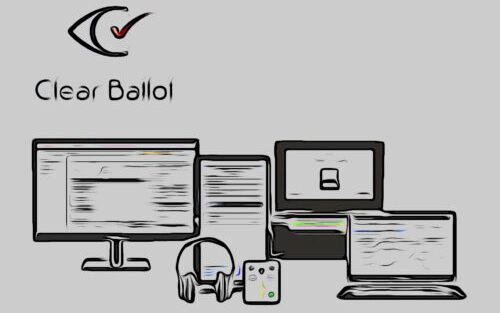Meet ERIC
The Electronic Registration Information Center (ERIC) was the brainchild of leftist attorney David Becker and was originally funded by George Soros via the Soros Open Society and Pew Charitable Trusts in 2012.
ERIC acts as a voter registration drive with the goal of registering as many people as possible, under the guise of voter roll clean up. Washington state was a founding member along with six other states: Colorado, Delaware, Maryland, Nevada, Utah and Virginia. It has since grown to include 30 states and the WA DC.
Known Issues
Louisiana recently suspended its participation in ERIC, among other reasons, because “partisan actors may have access to ERIC network data for political purposes.” ERIC is a real problem and has been the subject of several lawsuits including in Louisiana, Colorado, Michigan and WA DC by the Public Legal Interest Foundation (PILF). The ERIC Bylaws and agreements with the states violate federal law and the 1993 National Voter Registration Act by hiding election data information and prohibiting public inspection.
How it “works”
Participating states upload various data sets containing residents’ personal information to the ERIC database, including the DOL data, social security data, voter registration data, and other sources containing everyone’s personal information.
All participating states share their citizen’s (and non-citizen’s) information to this shared database. ERIC will then cross reference them to identify people who moved out of state, to a different county within the state, deceased voters. ERIC also provides one particularly valuable list of people who are eligible to vote but not yet registered.

Eligible but not registered
Matter of fact, we know that WA SOS requested this report in September of 2020, 2 months before the election. According to the documents we have obtained, the reason for that report is to allow the county to send a letter to these people and encourage them to vote.
A list of people not registered but eligible comes in handy when you need to add people to the registration to cover the number of ballots reported; or pad the registration to add names to the ghost votes they inserted. With multiple states sending their data, the names could be shared between the states, like an exchange program. This would allow them to use real names on the registration, but who is going to look in other states to see if they voted? Especially those who aren’t even registered in their legal district.
Not required to act
Here is the problem with that: There is no requirement to address the problematic voters identified by the program. There is no follow up conducted with the state to see what they really did with information. So, while it sounds harmless that they are sending letters to people who are not registered, there is no confirmation verifying that is all they used it for.
Non-citizens
There is a rule in their bylaws which restricts the state from identifying the non-citizens included in the data. If they do not exclude those who are not legally able to vote when they send the data in, how can they be sure the list of eligible but not registered people are all really eligible?
Additionally, many immigrants come to this country and work very hard at obtaining citizenship. This is the legal route to citizenship. Most of which would not dare to jeopardize that. Yet their information is put at risk, and they could be penalized for casting an illegal ballot.
Requesting reports
States have to request that ERIC run the reports that they would like to receive. Each participating state is required to request at least one report per year. Once the states receive the reports, it is up to them what to do with it. For the report that is offered to identify voters who may have voted in two states, the state where the voter is believed to not be eligible to vote must contact the other state and work it out between themselves. If they so choose, that is.
Hoax
Even though ERIC is loaded with data of various types from across the country, it doesn’t appear to be very effective for people who move out of state, even if both states are participating in the program. We personally know 3 people who lived in Washington for several years, all registered voters. They all moved to Florida, another ERIC member state. At this point, the voters have been in Florida for about 6 months. They are registered to vote there, got their driver’s licenses there, and are still registered in Washington with an active status.
(UPDATE: After about 7 months, they were removed from the registration. However we believe this is because we brought it to their attention and they took the steps to cancel their registration.)
Deceased voters
For 2018 ERIC reported that there were 42 deceased people, 41 in-state duplicates, and 134 cross-state duplicate voter registrations who participated in the election. We have reason to believe these numbers are much lower than the actual figures, based on our own discoveries within the VRDB.
We were provided some records from one county which showed hundreds of deceased people on the registration. ERIC failed to report these people in addition to the ones that moved out of state.
Other sources
There is some really good information on the Electronic Registration Information Center available HERE from the Gateway Pundit. It is actually a series they made when ERIC was making national news. Links to the other parts of the series is available at the bottom of the article.




